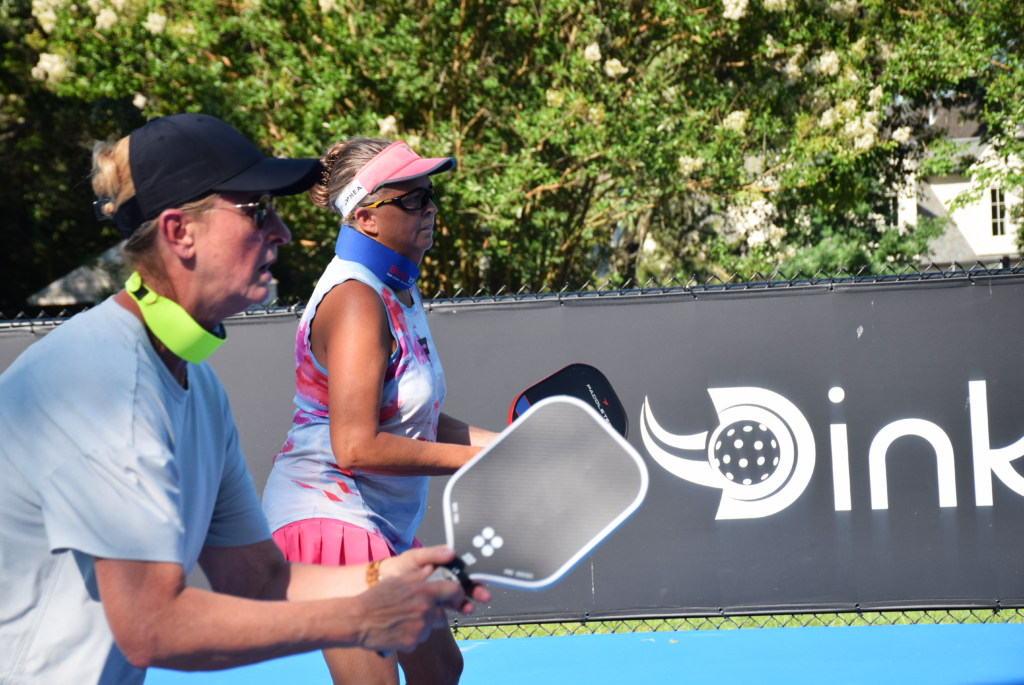
When you walk by a tennis court in Nashville these days, chances are pickleball players have taken over.
From parks to recreation centers to even backyards, the fastest-growing sport in America continues to get bigger — but what is it?
Pickleball Kids USA Founder Randall Bedwell says it’s an “amalgamation” of badminton, tennis and ping pong.
“It’s played on a badminton-sized court with a net two inches lower than a tennis net, with a wiffle ball and an oversized-looking ping pong paddle.”
He said the sport had been gaining popularity before the pandemic, but as gyms and indoor facilities closed, the ability for two pickleball courts to be laid out on one tennis court seemed almost too good to be true.
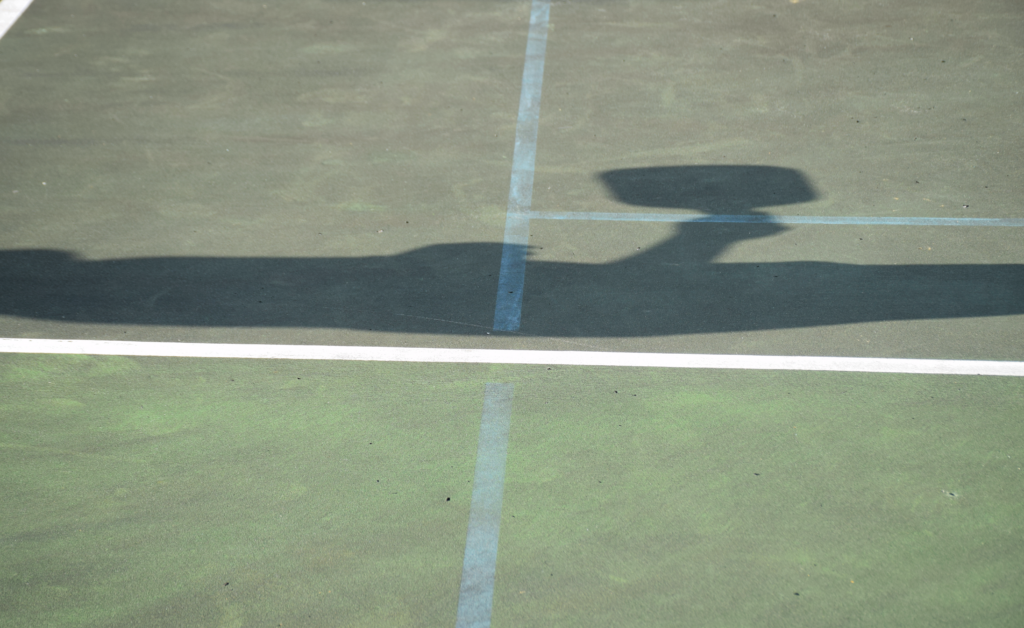

The social component of the game didn’t seem to hurt either, said Stephanie Lane, the undisputed “Queen of Nashville Pickleball.”
“It’s just so much more welcoming and fun,” Lane said. “And each time you get out there, you just keep getting better — one dink at a time.”
Lane first learned about the sport in the late ‘80s at Lipscomb University when her tennis coach would have the team play pickleball on rainy days. Since then, she’s become a well-renowned instructor and national pickleball medalist.
“Because people have poured into me, I love to pay forward little tips that changed my whole pickleball game,” Lane said. “And so, when people are sponges and they want to hear it, I’m like, ‘Let me share what people have shared with me that has helped me, and maybe it’ll help you.'”
Billy McGehee, or “King Pickle” as he is most well-known, came to Nashville because of Lane. And with him, so did Nashville’s first pickleball festival at the Nashville Fairgrounds.
“The creation of this Great American Music City Pickleball Fest was ‘Alright, we’ll try it once.’ Well, the people came out by the hundreds — because it is to promote the sport of pickleball but (also) to showcase there is a terrible need to build courts (in Nashville), for the new wave of players that are coming.”
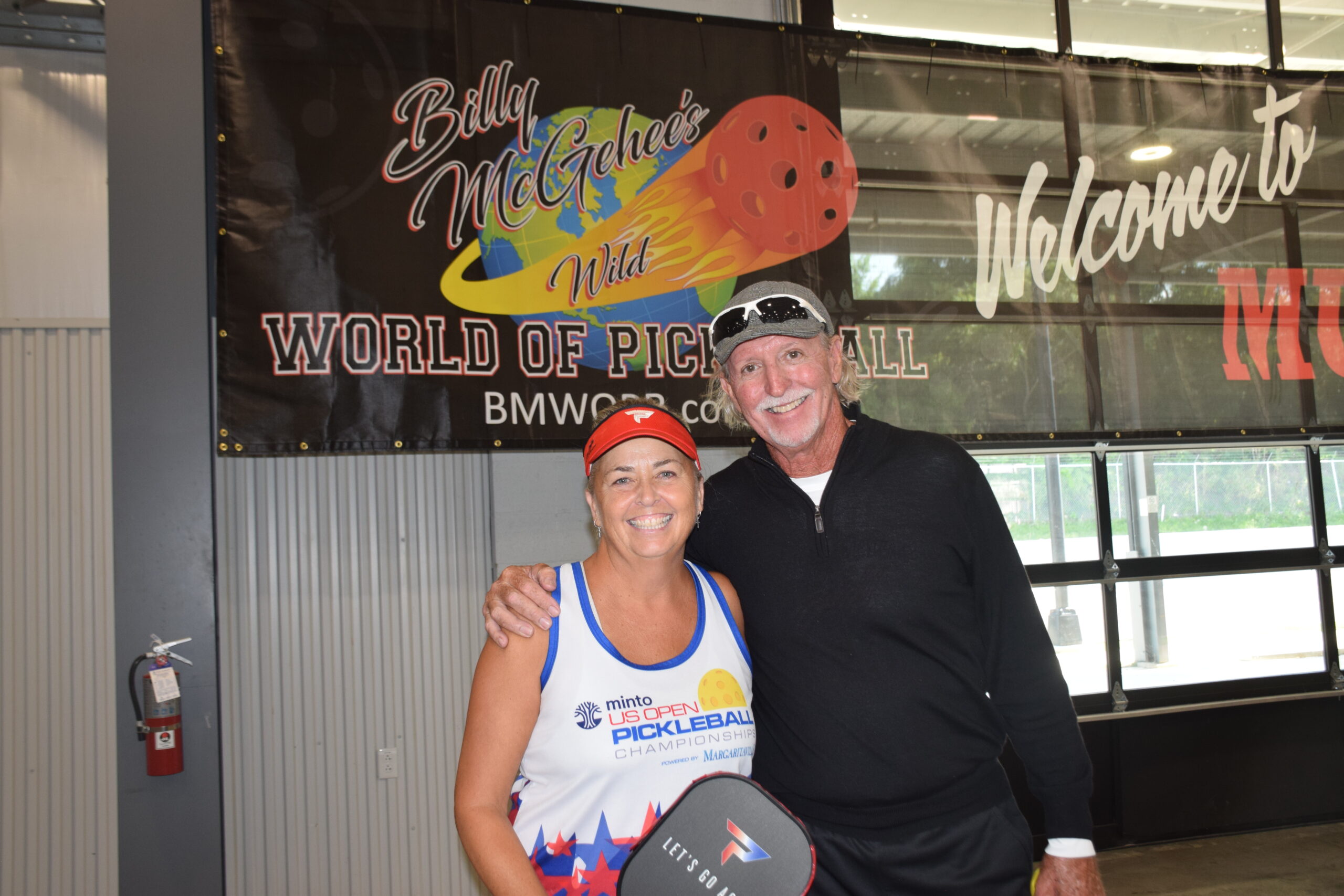
A former tennis pro and sports executive, McGehee has been building his pickleball brand since 2019 and says he looks at pickleball as a health and wellness movement — one that could grow to 100 million people playing in this decade.
He first discovered the sport in Florida.
“Parks on Sunday morning, Saturday morning, Thursday morning, Friday afternoon, Saturday afternoon were packed with people using old tennis courts laying lines down to play pickleball,” McGehee said. “There was a time where tennis really connected, and everybody wanted to play tennis. This gives me that same feeling. It takes me back 50 years.”
In 2021, the Association of Pickleball Players’ Pickleball Participation Report estimated there were 4.8 million pickleball players nationwide. A year later, the report, which was released in January, estimated 36.5 million players in 2022.
Locally, McGehee said that rise can be seen in the popularity of the festival, which lasted 12 hours.
“We’re seeing right now only 10% of what’s coming,” McGehee said.
Chattanooga resident Jim Miller participated in the event after seeing a post about it on a Tennessee pickleball Facebook page.
He began playing the sport after his wife passed away from cancer in February 2022.
“I started walking on the greenway, and our pickleball courts where I live are on the greenway also,” Miller said. “Before I saw it, I heard it.”
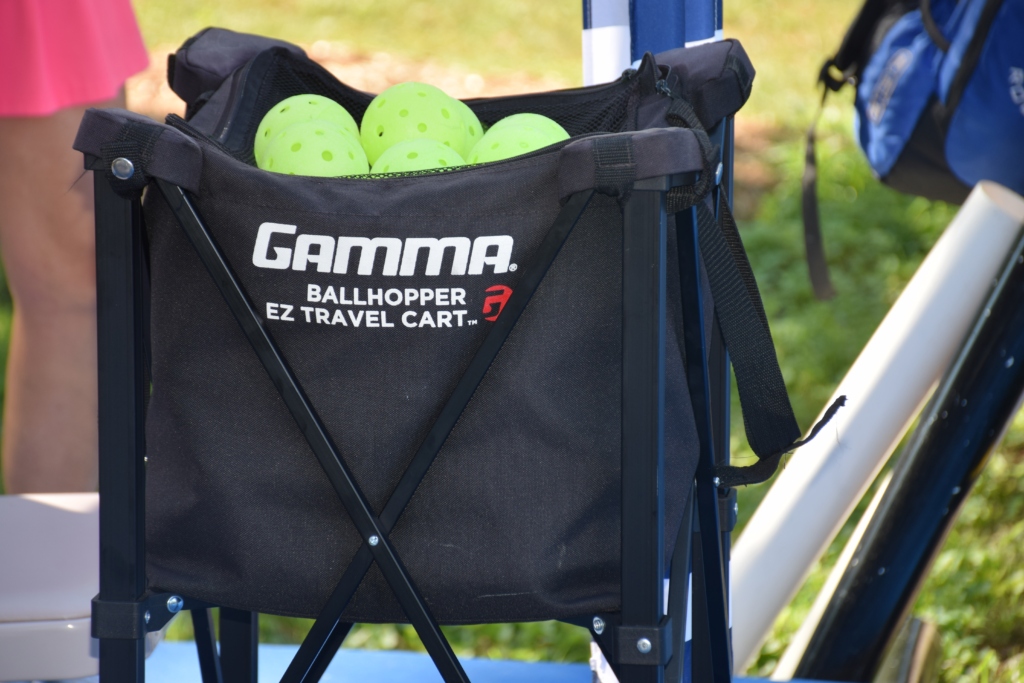

Miller said he was only curious to discover the origin of the popping sound, but before he knew it, he was handed a ball and a paddle to play.
“And that’s what I’ve loved about it. It was kind of my grief therapy,” Miller said. “Because here I was living by myself going through all this grief and all these people, they just picked me up. It’s just been a wonderful blessing.”
Michael Smits is a pickleball instructor and community advocate in Davidson County for more courts.
He first discovered pickleball at Nashville’s hot chicken festival in 2019.
“I remembered playing when I was in high school gym class, so we decided to give it a go and ended up finding a community center that had open play,” Smits said. “We became addicted pretty fast.”
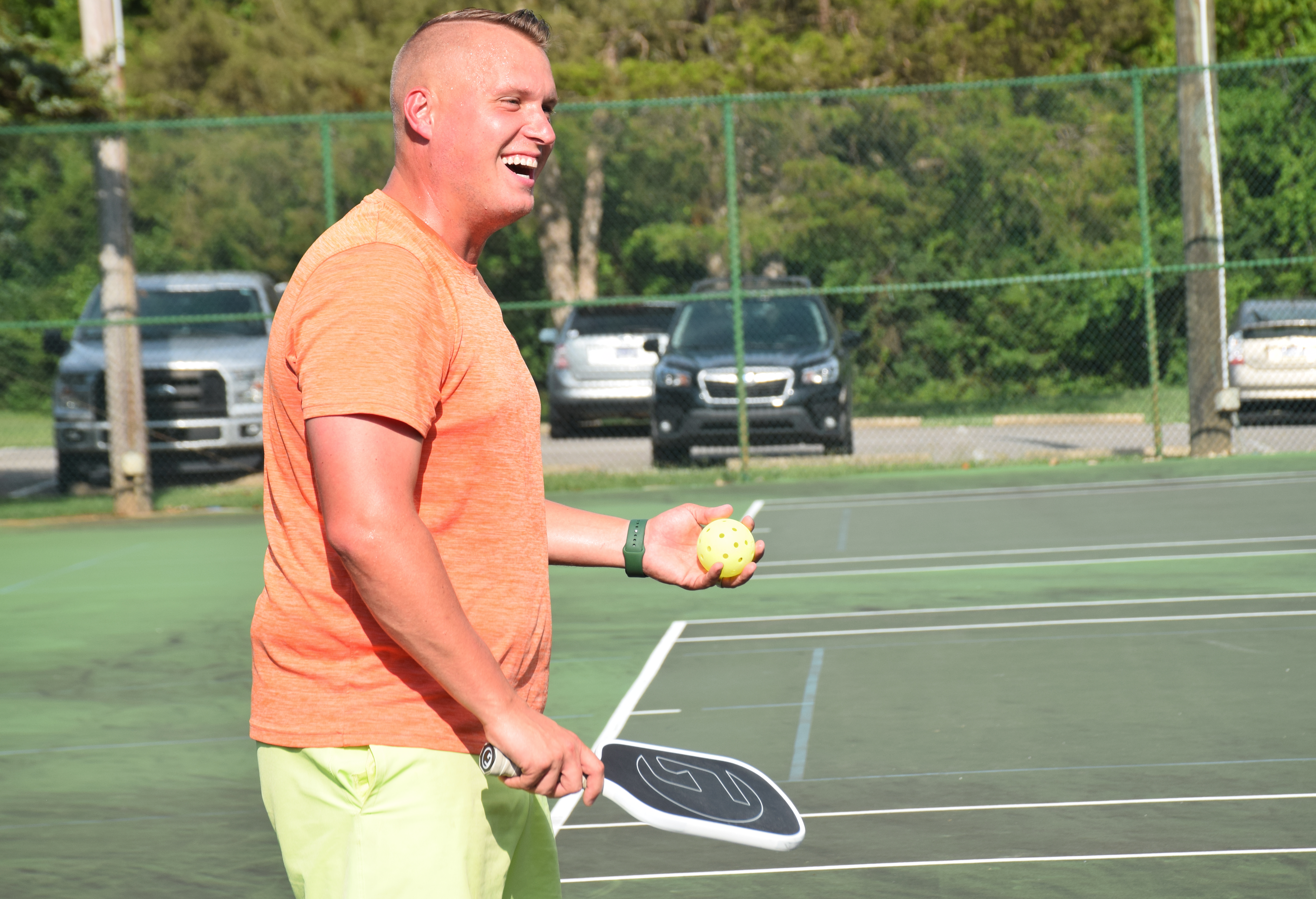
He says another reason the sport is catching on so quickly is its ability to cater to all ages.
The average age of a pickleball player used to be 55 years old. Now, it’s 34, according to recent research from the APP that showed nearly one-fifth of the total adult population had played pickleball in the past 12 months.
“I feel like pickleball, when it first started, everyone was like, ‘Oh, it’s a sport for older people,’ which may be the case on how it originally started, but it’s become a lot bigger of a sport for younger people too,” Smits said.
Bedwell says the allure is the accessibility — especially among children.
“Pickleball comes along and it’s a smaller court, it’s a shorter paddle, and a slower ball,” Bedwell said. “As a result, children have the opportunity to engage in extended rallies and have a much greater satisfaction from the game from the very beginning.”
He’s hoping to put Tennessee on the map, and his plan seems to be working.
The first annual Tennessee Junior Pickleball Open will be held in Memphis this fall. And a recent state grant will help tackle Bedwell’s ultimate goal: to make pickleball a varsity sport.
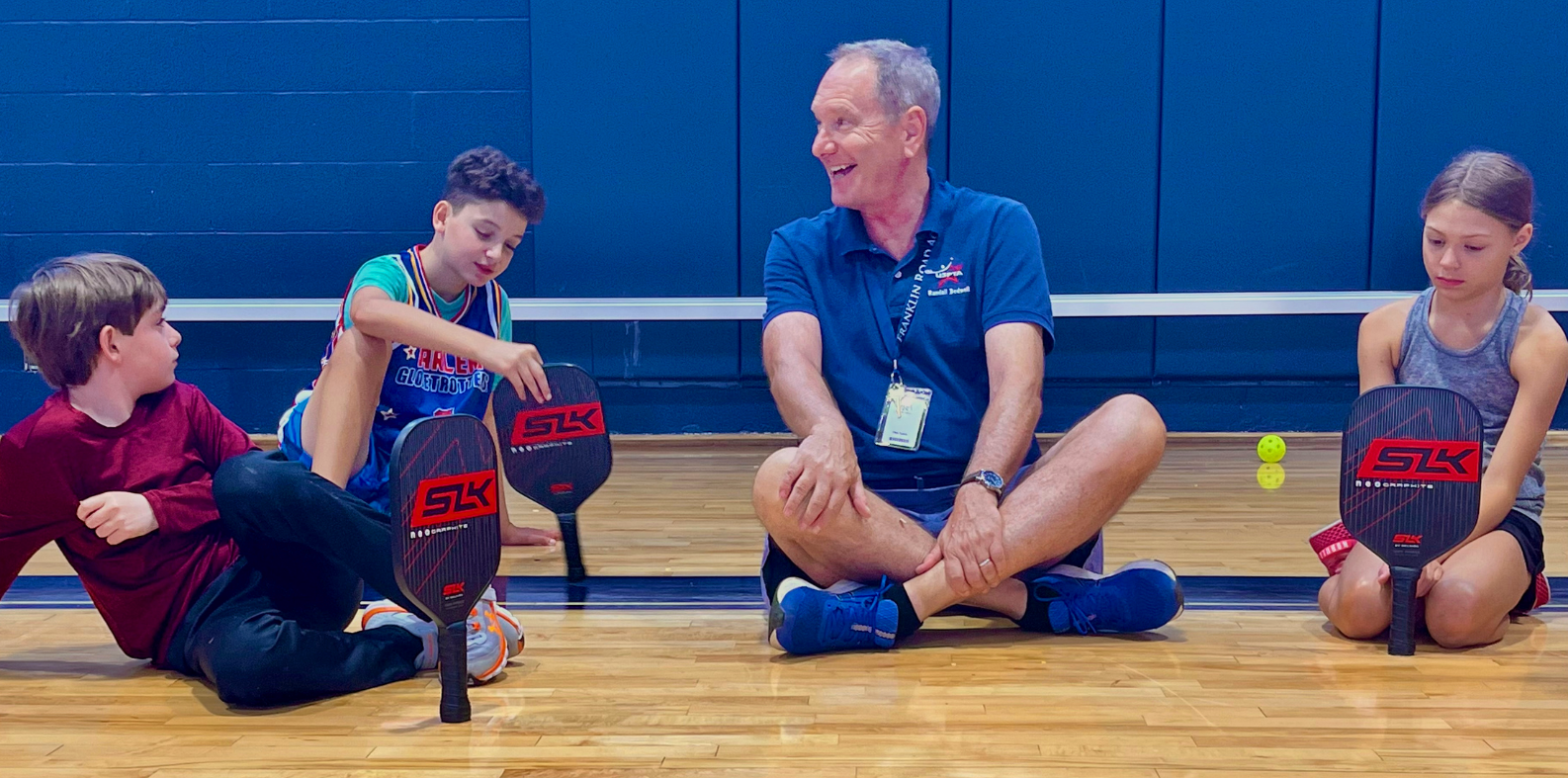
“Probably about three weeks ago, I get an email from a woman who works for the Department of Health, and it was basically saying, ‘Hey, would you mind receiving a grant to teach pickleball in Carroll County, Tennessee?’” Bedwell said. “I had to think about it for about two nanoseconds to say yes.”
Under Tennessee’s Collaborative Action for Resilience and Equity grant, Bedwell will be paid to create statewide standards for K-12 physical education curriculums.
But an increasing demand for courts has been the biggest problem.
Neighboring cities like Franklin, Hendersonville and Murfreesboro already have dedicated public pickleball courts.
In Davidson County, there are still none.
“We don’t have facilities. There’s no place for people to gather,” Lane said. “To be able to have games, you have to go try to find tennis courts and mark them off and bring a portable mat and a bag and set it up. So, what if you don’t have a net?”

Lane says the holdup is Metro Parks, and that lack of accessibility continues to prevent more people from getting onto the court and learning the game.
“We said we need the courts; we’ve proven that there’s players, that there’s a need. Let’s meet the demand,” Lane said.
But it’s not stopping the growth of pickleball. It’s simply making it more difficult to continue expanding it.
“It’s creating some tension between pickleball players and tennis players,” Smits said, “which shouldn’t be there because we both love our sport.”

Smits and Lane said they’ve both offered to raise money to assist in the development of courts, suggested a potential fundraising tournament or the renovation of unused tennis courts — with no real response yet.
Meanwhile, across the country, pickleball advocates have big goals to see the sport continue entering the mainstream.
“What other activity can draw young and old equally?” Miller said. “Anytime you do a sport, especially as a senior citizen, your body starts breaking down … yet we keep going because it’s so much fun!”
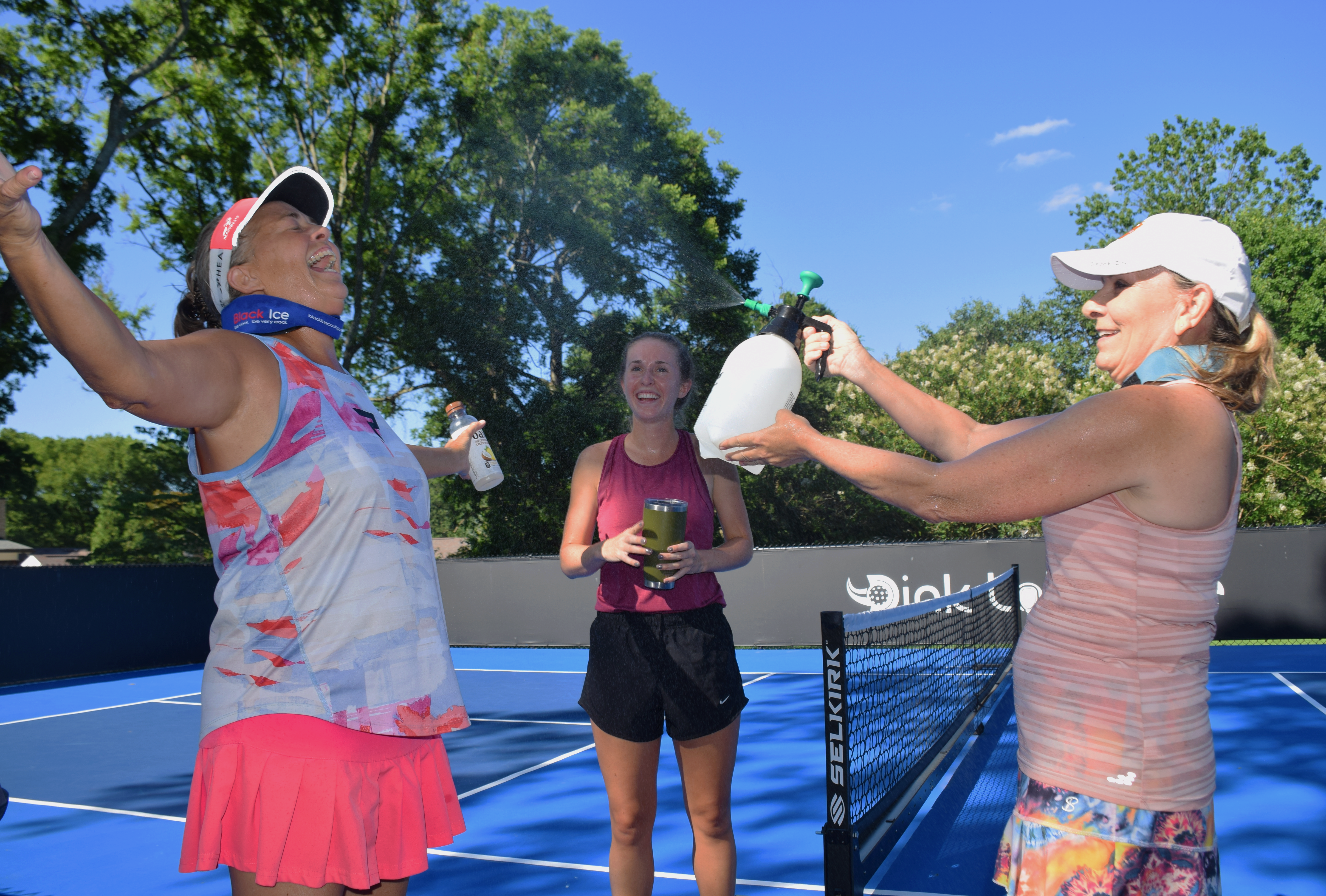
Bedwell said he’s looking for volunteers and parents who want to sign their kids up for competitive pickleball.
“The underlying goal is you can teach healthy habits, healthy competition and a whole lot of nonviolent communication, sports psychology and healthy living with a kid when you’ve got them on the pickleball court,” Bedwell said. “That’s the key to success.”
In Nashville, the focus remains on getting more space — and the recognition that pickleball isn’t going anywhere anytime soon.
“We’re woefully behind other metropolitan areas,” Lane said. “We just haven’t met the right person who says ‘We’re going to make (it) happen.’ We know it will. I just hope I’m not in a wheelchair by then!”

